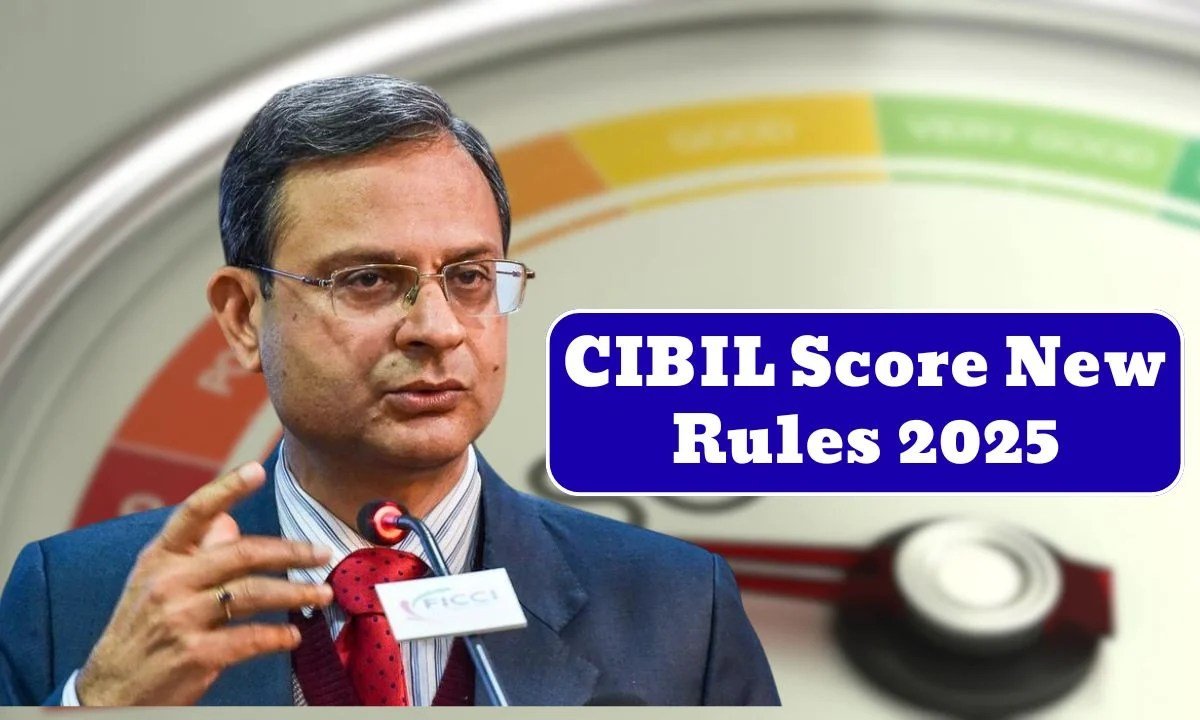If you’ve ever waited weeks for your credit score to update after paying off a loan or credit card bill, here’s some good news. The CIBIL Score New Rules 2025, introduced by the Reserve Bank of India (RBI), are quietly transforming how credit scores are updated and monitored in India. And honestly, the changes are long overdue.
Think about it. We live in a world where you can send money in seconds, but updating a credit score used to take an entire billing cycle. These new rules finally fix that gap, giving borrowers quicker visibility and more control over their financial reputation.
What’s Actually New in the CIBIL Score New Rules 2025?
RBI has directed all lenders—banks, NBFCs, fintech firms—to update borrower data twice every month. Updates will now happen on the 15th and the last working day of each month.
This is a major shift from the old once-a-month update cycle. It means your repayments, closures, or settlements get recorded faster, making your credit profile more accurate and up-to-date.
But that’s not all. The rules also require better transparency, more borrower protections, and faster dispute resolutions—features India’s credit system desperately needed.
Faster Updates = Faster Score Improvements
Here’s the thing: credit scores used to lag behind reality. You could clear your credit card bill today, but your score might reflect that change only weeks later.
Now, under the CIBIL Score New Rules 2025, the waiting time is roughly 15 days.
Let’s say you’re planning to apply for a home loan. You pay off a personal loan to improve your eligibility. With the new rules, the improvement reflects sooner, giving you a better chance at lower interest rates.
It also works the other way—multiple loan enquiries or high utilization show up faster too. So spacing out applications matters more than ever.
Big Win for First-Time Borrowers
If you’re new to credit—maybe a young professional or someone entering formal finance for the first time—this update is especially helpful.
Until now, people with less than six months of credit history were often invisible in the system. No score meant no loan.
But under the new rules, even limited data can generate an entry-level score.
It’s a huge nudge towards financial inclusion. Borrowers who were previously rejected simply because they had “no history” now get a fairer shot—whether it’s for a credit card, a two-wheeler loan, or even small-ticket personal credit.
Mandatory Alerts for Every Credit Check
One of the most practical features is the SMS or email alert whenever someone pulls your credit score.
Imagine waking up one day and realizing a lender you’ve never dealt with checked your score. That won’t go unnoticed anymore.
This protects borrowers from:
- Unauthorized inquiries
- Fraudulent loan applications
- Hidden pulls that bring down your score
On top of this, if you raise a dispute—maybe an incorrect overdue entry—lenders must resolve it within 30 days, with a human review for complicated cases. Banks delaying updates or ignoring errors will face penalties.
More Transparency When Your Score Drops
One of the biggest mysteries for borrowers is: “Why did my score suddenly fall?”
The 2025 rules fix that. Lenders must now share the reason behind significant score changes.
It could be:
- High credit card utilization
- Multiple loan inquiries
- A missed EMI
- Closing an old credit line
Understanding the “why” helps you fix the issue without guessing. As a rule of thumb, keeping your usage under 30% and avoiding back-to-back applications can help maintain a 750+ score.
Quick Overview of the CIBIL Score New Rules 2025
| Feature | Details |
|---|---|
| Update Frequency | Bi-monthly (15th & month-end) |
| First-Time Borrower Benefit | Score even with < 6 months history |
| Notifications | Alerts for every inquiry |
| Dispute Resolution | 30-day deadline + human review |
| Lender Penalties | Fines for late updates or errors |
| Ideal Score Range | 750+ out of 900 |
| Free Reports | 1 per year from each bureau |
| Effective Date | January 1, 2025 |
Why These Rules Matter for Your Financial Future
Loans are becoming a normal part of life—whether it’s for education, medical needs, or buying a home. The CIBIL Score New Rules 2025 give you more power to manage your credit, avoid surprises, and improve your chances of getting loans at reasonable interest rates.
If you want to stay ahead:
- Pay bills before the due date
- Keep credit usage low
- Check your free annual report
- Apply for credit only when needed
Small habits like these can save you thousands in interest and help you build long-term financial stability.
Frequently Asked Questions
How often will my credit score update under the new 2025 rules?
Your score will update twice monthly—on the 15th and the last day of the month. This means faster reflection of EMI payments, closures, and settlements.
Will first-time borrowers finally get a credit score?
Yes. Even with less than six months of history, new borrowers will now receive an initial score, making it easier to access loans and credit cards.
What should I do if my credit report has an error?
You can raise a dispute directly with the credit bureau. Lenders must resolve it within 30 days, and complicated issues must be reviewed by a human, not just an automated system.
When do the new CIBIL score rules become effective?
The new rules are effective from January 1, 2025, with all lenders required to implement bi-monthly reporting and improved borrower protection measures.
